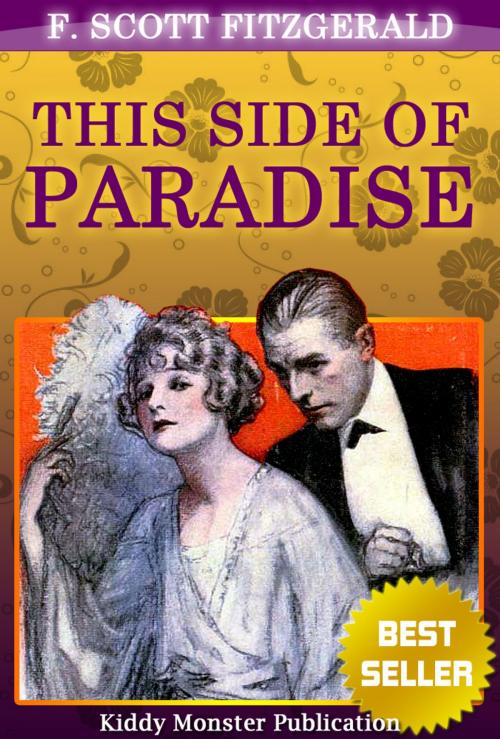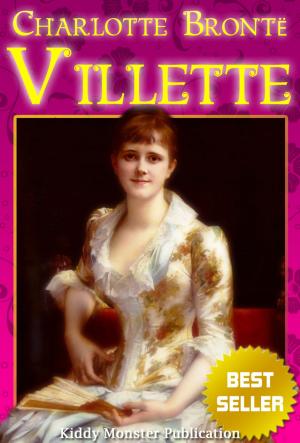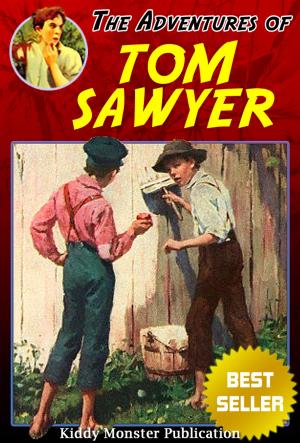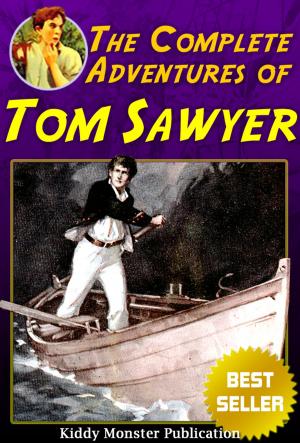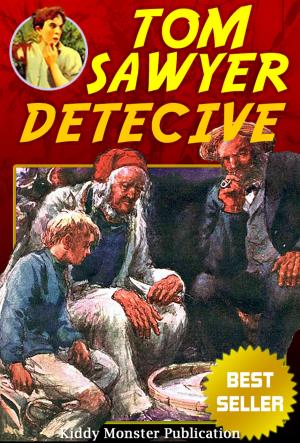| Author: | F. Scott Fitzgerald | ISBN: | 9789879990865 |
| Publisher: | Kiddy Monster Publication | Publication: | February 15, 2013 |
| Imprint: | Language: | English |
| Author: | F. Scott Fitzgerald |
| ISBN: | 9789879990865 |
| Publisher: | Kiddy Monster Publication |
| Publication: | February 15, 2013 |
| Imprint: | |
| Language: | English |
This Side of Paradise By F. Scott Fitzgerald - With Summary and Audio Book Link
FEATURES:
• Title contains Summary
• Audio Book Link at the end of the book.
• F. Scott Fitzgerald's Biography
• F. Scott Fitzgerald's Top Quotes
• Easy to navigated Active Table of Contents
• High formatting quality and standards, manually crafted by professionals
This Side of Paradise is the debut novel of F. Scott Fitzgerald. Published in 1920, and taking its title from a line of the Rupert Brooke poem Tiare Tahiti, the book examines the lives and morality of post-World War I youth. Its protagonist, Amory Blaine, is an attractive Princeton University student who dabbles in literature. The novel explores the theme of love warped by greed and status-seeking.
Plot summary
This book is written in three parts.
"Book One: The Romantic Egotist"—the novel centers on Amory Blaine, a young Midwesterner who, convinced that he has an exceptionally promising future, attends boarding school and later Princeton University. He leaves behind his eccentric mother Beatrice and befriends a close friend of hers, Monsignor Darcy. While at Princeton he goes back to Minneapolis where he re-encounters Isabelle Borg?, a young lady whom he met as a little boy and starts a romantic relationship with her, but after a few days he becomes disillusioned by her and returns to Princeton.
"Interlude"—Following their break-up, Amory is shipped overseas, to serve in the army in World War I. Fitzgerald had been in the army himself, but the war ended while he was still stationed on Long Island. Amory's experiences in the war are not described, other than to say later in the book that he was a bayonet instructor.
"Book Two: The Education of a Personage"—After the war, Amory Blaine falls in love with a New York debutante named Rosalind Connage. Because he is poor, however, this relationship collapses as well; Rosalind decides to marry a wealthy man instead. A devastated Amory is further crushed to learn that his mentor Monsignor Darcy has died. The book ends with Amory's iconic lament, "I know myself, but that is all."
This Side of Paradise By F. Scott Fitzgerald - With Summary and Audio Book Link
FEATURES:
• Title contains Summary
• Audio Book Link at the end of the book.
• F. Scott Fitzgerald's Biography
• F. Scott Fitzgerald's Top Quotes
• Easy to navigated Active Table of Contents
• High formatting quality and standards, manually crafted by professionals
This Side of Paradise is the debut novel of F. Scott Fitzgerald. Published in 1920, and taking its title from a line of the Rupert Brooke poem Tiare Tahiti, the book examines the lives and morality of post-World War I youth. Its protagonist, Amory Blaine, is an attractive Princeton University student who dabbles in literature. The novel explores the theme of love warped by greed and status-seeking.
Plot summary
This book is written in three parts.
"Book One: The Romantic Egotist"—the novel centers on Amory Blaine, a young Midwesterner who, convinced that he has an exceptionally promising future, attends boarding school and later Princeton University. He leaves behind his eccentric mother Beatrice and befriends a close friend of hers, Monsignor Darcy. While at Princeton he goes back to Minneapolis where he re-encounters Isabelle Borg?, a young lady whom he met as a little boy and starts a romantic relationship with her, but after a few days he becomes disillusioned by her and returns to Princeton.
"Interlude"—Following their break-up, Amory is shipped overseas, to serve in the army in World War I. Fitzgerald had been in the army himself, but the war ended while he was still stationed on Long Island. Amory's experiences in the war are not described, other than to say later in the book that he was a bayonet instructor.
"Book Two: The Education of a Personage"—After the war, Amory Blaine falls in love with a New York debutante named Rosalind Connage. Because he is poor, however, this relationship collapses as well; Rosalind decides to marry a wealthy man instead. A devastated Amory is further crushed to learn that his mentor Monsignor Darcy has died. The book ends with Amory's iconic lament, "I know myself, but that is all."
